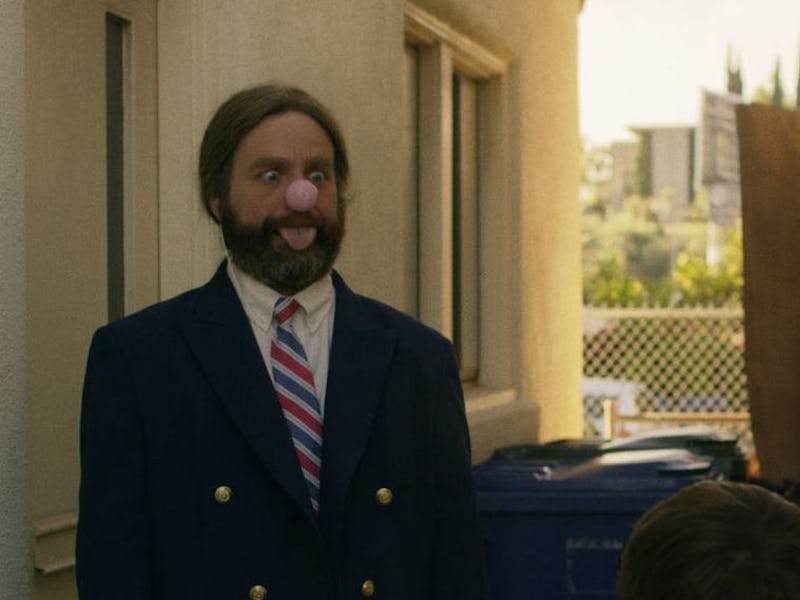'Baskets' Shows Why We Hurt the Ones We Love
The brilliant comedy of 'Baskets' is contrasted by candid exposures of a relatable human experience.

In the new FX series Baskets, Zach Galifianakis plays the role of Chip Baskets, a failed professional clown who accepts a job as a rodeo clown in Bakersfield, California after failing out of clowning school in Paris. He returns home to pick up the pieces of his ostensibly miserable life, accompanied by a terribly rude French woman who married Chip just to get a green card. The show follows Galifianakis as he tries to get his footing back in Bakersfield, which isn’t made any easier by interferences from his his eccentric, corpulent mother, played flawlessly by Louie Anderson, and a deadpan, average insurance worker Martha who talks at about the volume of a mouse. The new series masterfully treads the line between hilarious and heartbreaking as the absence of opportunity and lack of thrill in Chip’s life are both the never-ending jokes of the show as well as what makes it painfully human. While there are many things the show does to maintain this rift, its ability to demonstrate how we tend to hurt the people we love the most is one of its most humanizing aspects.
Chip’s relationship with Martha the insurance agent most thoroughly conveys this concept. It wouldn’t be accurate to say that Chip loves Martha because they’ve known each other for only a very short time, but it’s clear that she is one of the only people in Chip’s life who gives a shit about him. In fact, the stale, well-intentioned insurance agent he just met probably cares about Chip more than anyone else does, besides his mother, which says a lot about how pathetic Baskets makes Chip’s life out to be. Martha continuously offers her help to Chip, finding excuses to stick around because it’s painfully evident that she is lonely and needs some company.
But Chip shrugs her off at every turn. He screams at her to stop yelling when her voice couldn’t be softer or less offensive and finds fault in every single thing she does. While Chip is busy trying to impress his French wife who thinks of him as a puppy that follows her around, he walks all over the one woman who would actually be there for him. The show seems to hint that the two will eventually get together, but that remains unlikely considering the current one-way road of their relationship.
Martha holding the Talking Koosh.
Chip’s relationship with his mother is also responsible for a great deal of the cringe-worthy reality of Baskets. Considering how most people experience a certain level of annoyance with their parents, the strained relationship between Chip and his mother is not a revolutionary portrayal. It is, however, another route the series takes to demonstrate how Chip invests his best interests in people who think he’s despicable, while he turns a blind eye to the people who want to help him, like his mother. When you see the way Chip and his mother interact, you would think that Chip was 5 years old — she must constantly tell him to behave himself when they’re in the company of others and she’s left to deal with his outbursts when he reacts sourly to an endless series of personal misfortunes. On the one hand, if your life were as visibly pitiful as Chip’s, you’d probably find it hard to be nice to the people around you. His current situation, however, is continuously exacerbated by refusing help from the only people who will ever offer it.
Mrs. Baskets in church.
Baskets is one of those shows that makes it difficult to decide if you should laugh or cry. The overarching theme of the show appears to be bleakness — the rural landscape of Bakersfield, the future of Chip’s clowning career, and the current states of his personal relationships are all bleak. For a show that does its best to display emptiness, Baskets is full of moments that capture both the hilarity and the pity of an average human experience.